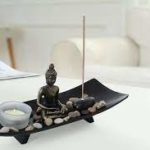Protecting the wiring in your house should be your first priority. By managing the internal circuits and wires you can ensure optimal performance and safety of your family. If they’re left on their own unchecked they can lead to fuses or in a worst-case scenario house fire. Always make sure they are well insulated and if not you should make arrangements to either replace them or repair them by insulating them with a fire sleeve. There are several things you can do to maintain the safety of your house:
Check for Correct Usage of Wattage for All Appliances and Fixtures
Using compatible bulbs can save you from so many troubles. The right bulbs won’t cause any electrical problems so make sure to check all lights and lamps, electrical appliances and fixtures to see if you’re using the correct wattage or not. Since LED bulbs use less electricity consumption and reduce the risk of overheating in fixtures you should consider replacing your bulbs with LEDs.
Be on the Lookout for Overloaded Sockets and Outlets
Overloading usually leads to the misery of electrical problems. All your electrical outlets shouldn’t be heated up. Make sure that they are cool to touch, have protective plates and are working properly. Avoid using multi-face outlets for electric appliances. Plugin one heat-producing appliance in a socket at a time. If you think an outlet is heating up do consider calling for professional help. Be mindful that power stations can only add more outlets keeping the power supply the same.
Repair or Replace any Faulty Electrical Cords for your Safety
A damaged electrical cord is a major safety risk in your residence and has the capability to cause electrocution or a fire. You should check all power and electrical wires regularly. If you notice any sign of cracking or fraying, repair or replace them as required. Avoid stapling power cords in place or put them under furniture or rugs. They can be a tripping hazard if placed under a rug and can be damaged and exposed under the weight of the furniture. You can also consider getting a fire sleeve for your electrical cord that is at risk of getting damaged.
Keep Cords Tidy and Organised
Electric safety restrictions apply to all cords. No matter if the cords are in use or not, you should always keep them arranged and organized. For additional safety, you should also properly store them in a dry area to avoid any damages. Hide them away from pets and children who might bite or chew on them. Also, make sure you keep them away from any heat sources that could burn or melt their insulation.
Unplug All Devices When Not in Use
One of the most precise electrical precautionary tips is additionally one of the least to neglect: when a machine isn’t being used, turn it off. In addition to the fact that this saves you power by decreasing any phantom power loss (the measure of energy the gadget devours in any event, when not effectively being used), but rather turning off unused devices additionally shields them from overheating or forces electric power surges.
Keep Water and Electrical Appliances Far Apart
Water and power don’t blend well. To observe electrical precautionary guidelines, keep electrical devices dry and away from water sources. It can cause harm to machines and can also be a risk for individual injury and electric shock. When working with electrical devices, have dry hands. Getting electrical hardware far from plant pots, aquariums, showers, sinks and baths brings down the danger of water and power coming into contact.













